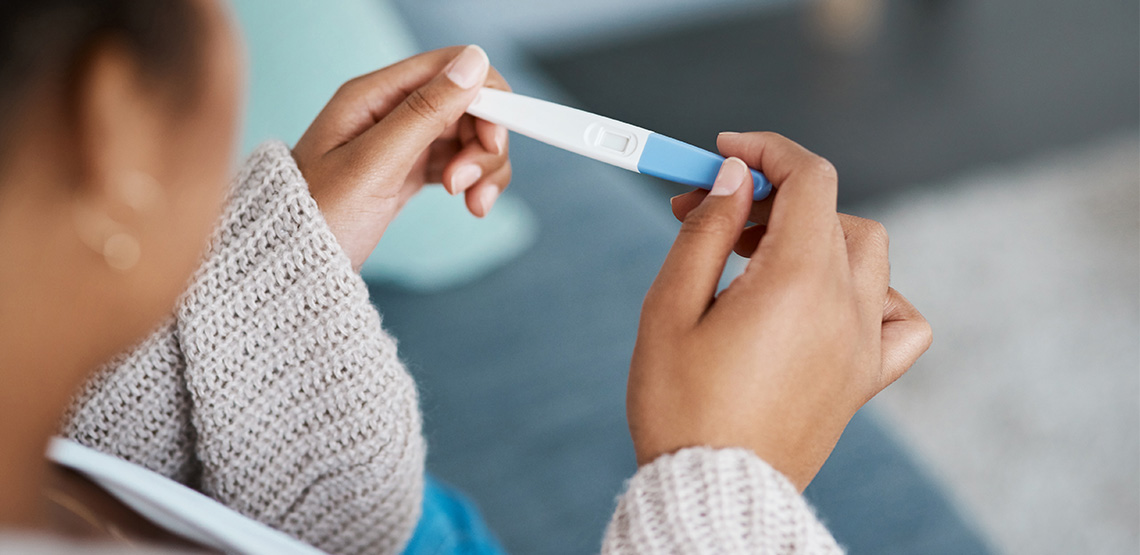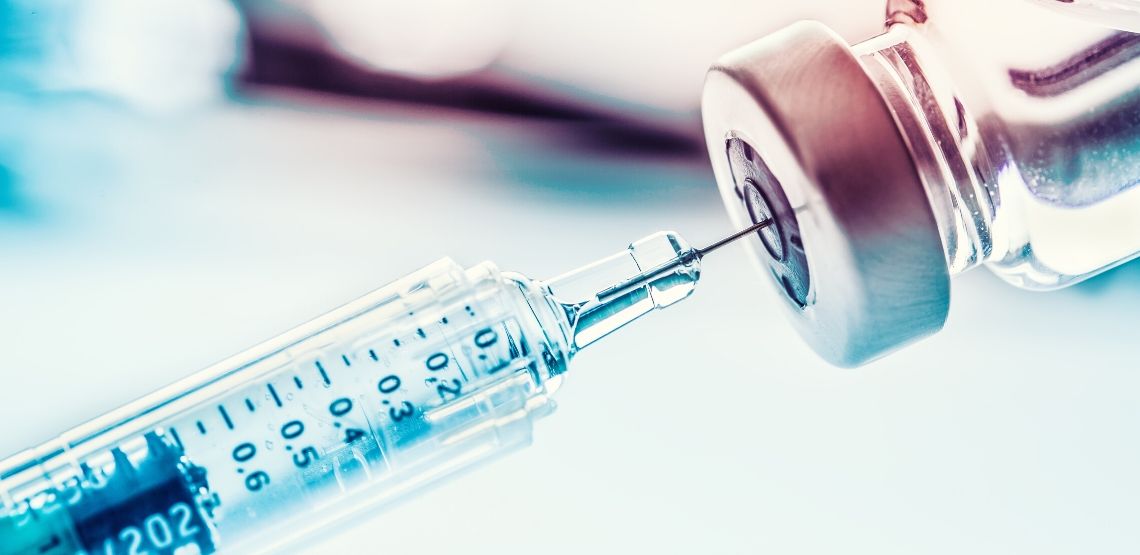Early Pregnancy Symptoms
A missed period or strange food cravings are signs that may indicate pregnancy, but these symptoms aren’t the only ones to look out for. There are several indicators that may hint at a figurative bun in the oven. It may be too early to take a pregnancy test, but you can keep an eye out for some of these early symptoms.
Sore Breasts
Even in the early stages of pregnancy, your body starts to change. As early as a week or two after conception, your breasts may be extra tender, sore or full feeling. Your body creates additional estrogen and progesterone early in pregnancy, which causes the glands in the breasts to start growing (even this early in pregnancy!).
This hormone surge causes breasts to retain more fluids and feel heavy, achy, or become more sensitive than normal. Your body will eventually adjust to these hormone levels, and after a few weeks the discomfort should decrease.
Implantation Bleeding
This symptom may be mistaken for your monthly period and happens when the fertilized egg implants in the lining of the uterus one to two weeks after conception. You’ll see some light spotting or bleeding and, like a period, this symptom can come with cramps.
Implantation bleeding occurs around the time of a menstrual period, which is why it may be mistaken for your period. Not all women experience this symptom, but it occurs in up to 30% of those who are expecting a little one.
Implantation bleeding is a shorter duration than your normal period, and subtly different as well. Implantation bleeding is harmless, and you should not be concerned if your “period” seems lighter than normal.
Fatigue
The fatigue that accompanies pregnancy is complete and utter exhaustion that makes even minor tasks seem herculean. Even in the initial stages of pregnancy, your body is working harder than ever to support the development of your embryo.
Extra progesterone causes your basal body temperature to rise, resulting in a lack of energy and this hormone increase also causes you to feel sleepy. Your heart pumps faster to deliver extra oxygen to the uterus and an enormous amount of energy goes into building placenta — the life support system for the baby.
You’re creating the universe in your uterus; you’re bound to feel a noticeable dip in your usual energy levels.
Related Search Topics (Ads)
Nausea
Some women are lucky to miss out on this symptom, and others have the misfortune to feel nauseated all day. Nausea, or morning sickness, affects up to 85% of expecting mothers and starts as early as two weeks after conception. Likely culprits for the nausea are hormone related — which is understandable, given the immense changes happening inside your body.
Nausea is related to human chorionic gonadotropin (HCG), a hormone detected in the mother’s blood or urine. The higher the HCG level, the sicker you may feel. Progesterone also slows down your digestive process; since your stomach doesn’t empty as fast as usual, it mistakenly thinks that it’s too full and does what it can to create room, making you feel sick in the process.
Estrogen isn’t entirely blameless; this hormone also contributes to nausea. In your first trimester, you’re also likely to become more sensitive to certain smells and these food aversions will turn your stomach — do what you can to ride out this symptom and see a doctor if it’s unmanageable.
Nasal Congestion
Inflammation in your sinuses is usually dismissed as part of a head cold or allergy, but nasal congestion may be another indication that you’re pregnant. Bloody noses, congestion and postnasal drip are all common in pregnancy, and as with most early pregnancy symptoms, hormones are likely the reason why.
Increasing hormones and blood production can cause the mucus membranes in your nose to swell, dry out and bleed easily. This can cause that stuffy or runny nose. Estrogen can make blood vessels dilate, which contributes to the swelling of mucus membranes in your nose.
Saline spray can help relieve discomfort in the short term, but be sure to read the ingredients and double check with the pharmacist that it’s safe to use through pregnancy. Your congestion should resolve itself after your baby makes their debut to the world.
Headaches
Find yourself reaching for the Tylenol more frequently to ease your headaches? Those headaches may be another symptom of pregnancy that starts in the first few weeks after conception. Increased blood volume may trigger frequent but mild tension headaches and your fluctuating hormone levels only make headaches worse.
As your estrogen levels stabilize during pregnancy, migraines and headaches should become less frequent. Headaches in and of themselves are not a sure sign of a positive pregnancy; headaches can also occur if you aren’t well-hydrated or if you’re anemic.
Make sure you’re drinking enough water and see your doctor if you continue to have headaches.
Basal Body Temperature
This symptom is difficult to catch if you’re not checking your temperature on a regular basis, but basal body temperature could provide advance notice that you’re pregnant. When some couples are trying to conceive, they measure body temperature first thing in the morning — which can usually indicate when a woman is ovulating.
Typically, basal temperature is half to one degree or more higher when an egg is released and remains at this higher temperature until your period starts. If you’re charting your basal body temperature and it hasn’t decreased in more than two weeks, you may be pregnant. As with the other early symptoms, there may be other reasons your temperature is high; your body may be fighting off a virus, for instance.
These seven symptoms aren’t unique to pregnancy, so you shouldn’t assume that you’re pregnant if you’re experiencing some of these signs. If you notice these symptoms or your period is late, take the first step and do an at-home pregnancy test. If it’s positive, follow up with your physician for your next steps.


